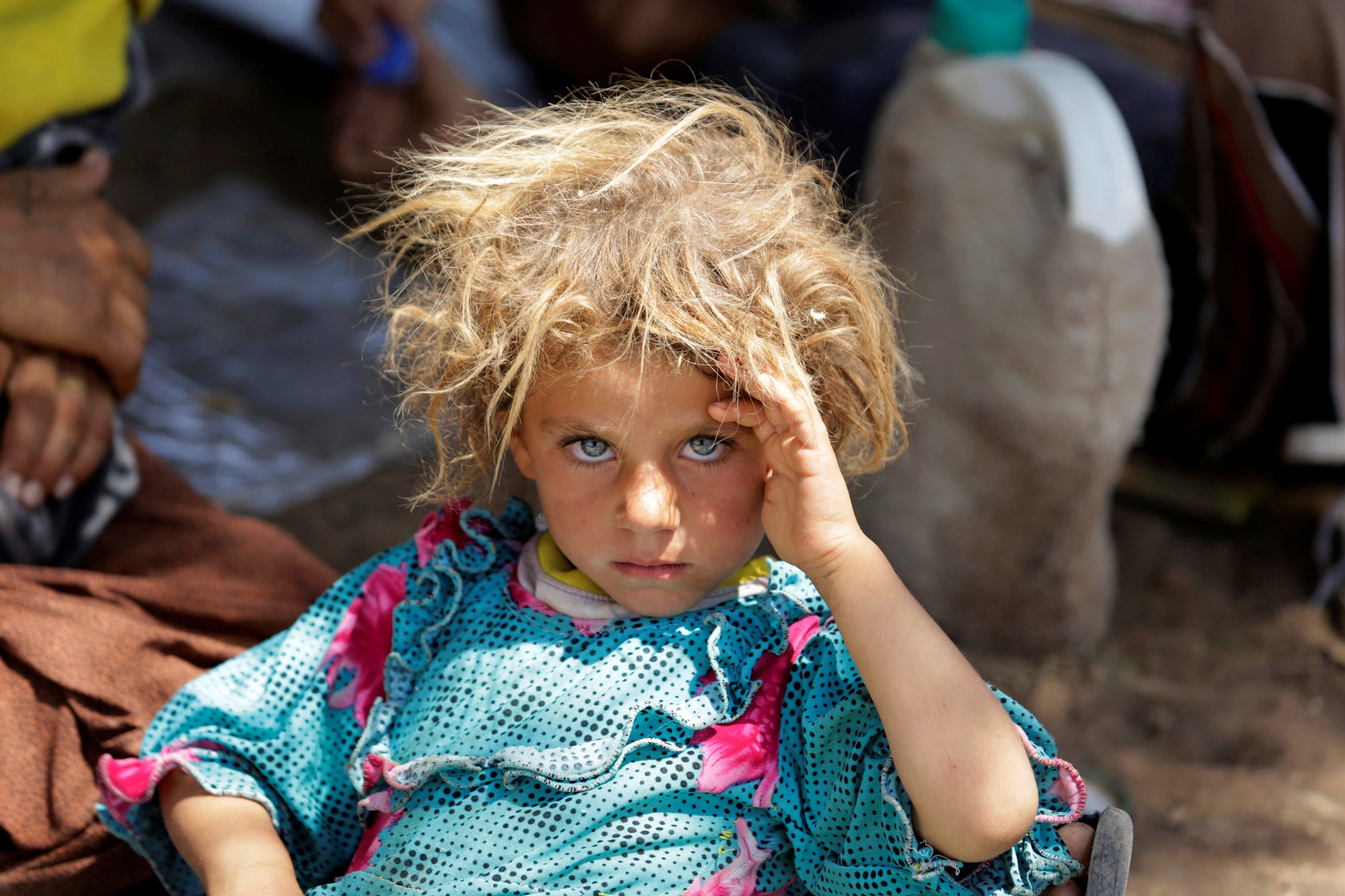
Two years ago today, on August 3, 2014, the world watched in horror as ISIS massacred the Yazidi ethnic and religious minority on Mount Sinjar, slaughtering Yazidi men and abducting Yazidi women and girls as sex slaves.
Far from being an isolated atrocity, Sinjar marks the beginning of ISIS's genocide of Yazidis and the world's failure to do anything about it.
Despite history's typical debates about whether or not to levy the word genocide onto a given atrocity (examples, Bosnia, Rwanda, Darfur), the State Department, the European Union, the British House of Commons and the United Nations all agree: Yazidis are suffering ongoing genocide at the hands of ISIS.
Yet the international community remains mostly unmoved, even in the face of repeated reports detailing how Yazidi men are killed, Yazidi boys are recruited and Yazidi women and girls are enslaved and raped.
The most obvious thread tying these two phenomena together—the continuity of the genocide and the inaction confronting it—is gender.
Genocide continues against Yazidi women and girls as a result of ISIS's policy of sexual and gender-based violence. For the most part, when people think about genocide they think about killing on a massive scale. But killing is only one way to commit genocide—it can also be done by "causing serious bodily or mental harm," "preventing births," or "forcibly transferring children."
ISIS is committing each of these crimes against their female Yazidi captives. They are causing serious bodily and mental harm by enslaving and raping Yazidi women; they are preventing births by dominating and literally owning women's reproductive capacity; and they have transferred girls from their Yazidi families into slavery.
In other words, for the Yazidi women and girls still in ISIS captivity, still being bought and sold, still being raped, genocide is occurring on a daily basis.
Just as gender underpins the ongoing nature of ISIS's genocide. So too does it explain the international community's lethargy in acting to save these women and girls.
Traditionally, women have taken a back seat in armed conflict. War was a man's realm—men fought wars, men were killed in wars, men ended wars, women's experiences were ancillary. This paradigm, while changing slowly, is still very much with us.
For example, mustard gas, blinding laser weapons, exploding bullets, land mines, sea mines and white phosphorous are all prohibited tactics of war. Sexual violence is not. Mustard gas, exploding bullets target war's traditional victims: soldiers. So, it should come as no surprise that in the face of genocidal rape, Yazidi women and girls find few international allies.
Another example of how this paradigm plays out is the emphasis on ISIS as a terrorist organization. The label is obviously well deserved—ISIS has carried out, called for or inspired attacks all over the world—and states have rightfully responded with robust counterterrorism campaigns.
Taking a step back, though, it is interesting that "terrorism" is essentially the sole catalyst for international action, whereas genocide isn't even a footnote. Sure, by its very design terrorism is intended to victimize all of us. But genocide, too, affects all of us. Often called the "crime of crimes," genocide is an existential negation, a crime against global diversity.
In fact, genocide is such an affront to international justice that when it occurs, states have absolute international legal obligations to end it. Such obligations do not exist with terrorism. What's more, not only must states take action, they must do everything within their power to end genocide.
These obligations are not merely hortatory. In 2007, the World Court found that Serbia was liable for failing to take all measures available to prevent the genocide of Bosnian Muslims at Srebrenica. The court went on to say that such preventative measures were required regardless of their likelihood of success.
Still, states are falling woefully short of this relatively low bar to end ISIS's genocide against Yazidi women and girls.
There are several actions states can take domestically and in conjunction with one another to deliver on their international legal obligations. For example, in addition to prosecuting ISIS fighters on domestic terrorism charges, national prosecutors should allege genocide, conspiracy and attempt to commit genocide.
States should also work through the United Nations Security Council to refer the case to the International Criminal Court and the court should include genocide charges for any ISIS fighter that kidnapped, bought, sold, trafficked or raped a Yazidi captive.
Maybe most immediately, states should undertake efforts, or in the very least support existing efforts, to rescue the 3,200 Yazidis still in ISIS captivity and suffering daily tortures.
Finally, international donors should partner with local and Yazidi-led organizations to help support the community's rehabilitation and rebuilding.
The anniversary of the massacre in Sinjar calls for the dual promise of our remembrance of a tragedy completed, but also for action on a tragedy ongoing. The international community has set out international obligations on genocide precisely to compel action and to hold accountable states that fail to act in the face of genocide. This is no less true for genocidal rape of women and girls than it is for mass killing.
Unless the international community steps up and delivers on these obligations, and does so soon, we'll have to make the promise of "Never again" again.
Pari Ibrahim is founder and executive director of the Free Yazidi Foundation and Grant Shubin is staff attorney at the Global Justice Center.
Uncommon Knowledge
Newsweek is committed to challenging conventional wisdom and finding connections in the search for common ground.
Newsweek is committed to challenging conventional wisdom and finding connections in the search for common ground.
About the writer
To read how Newsweek uses AI as a newsroom tool, Click here.





